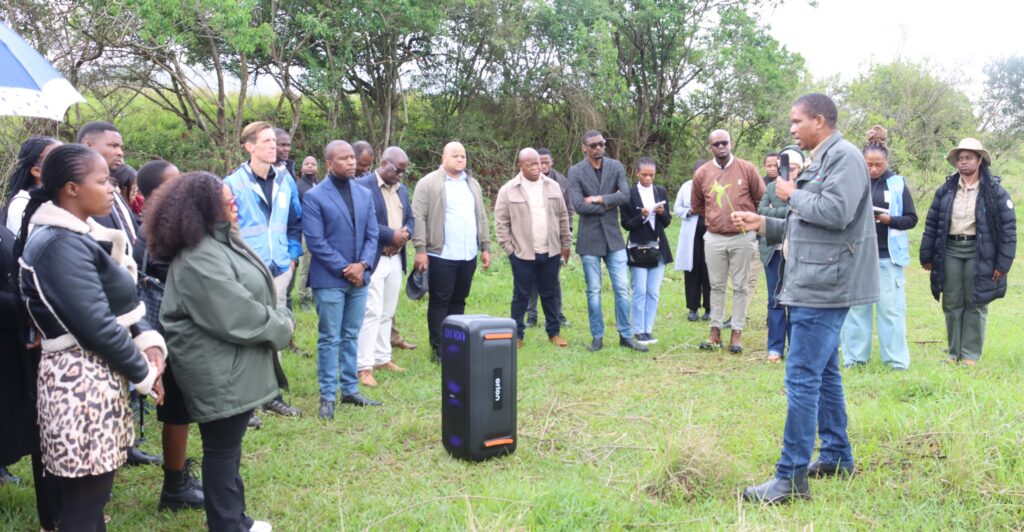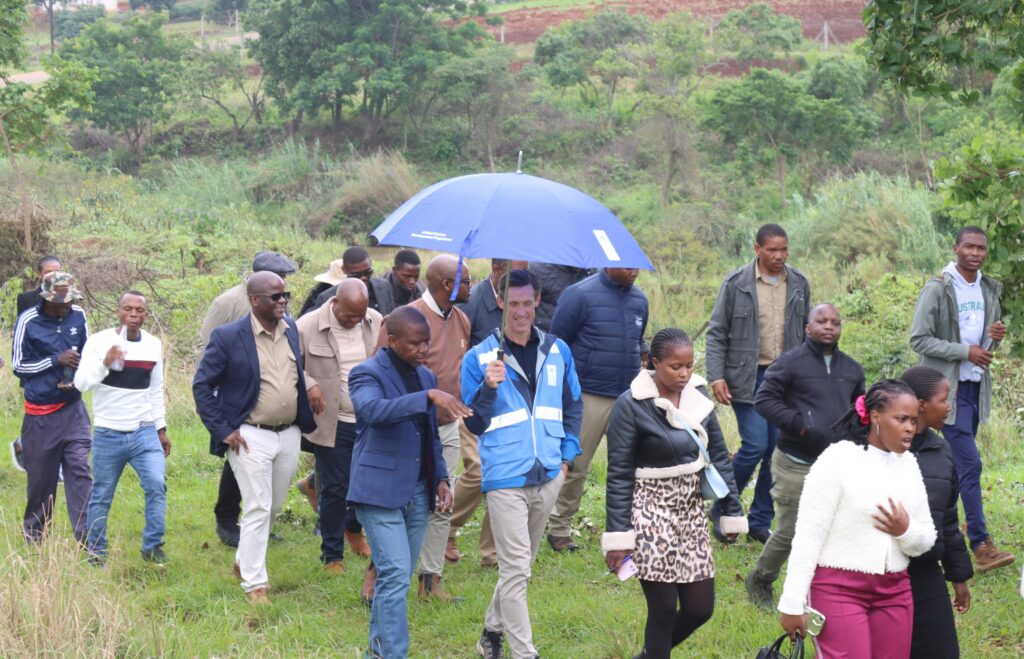Lusushwana – A growing partnership to revive the Lusushwana River brought private sector leaders, policymakers, traditional authorities, youth and development partners to Lozitha last Friday, where they assessed early progress in restoring one of Eswatini’s most threatened catchments.
The gathering formed part of the Nature based Solutions Pilot to Establish a Catchment Investment Plan, a one year initiative implemented by UNDP Eswatini in collaboration with CONCO Eswatini, the Eswatini National Trust Commission, Business Eswatini and the Eswatini Environment Authority. The project responds to the 2020 to 2030 National Strategy on Invasive Alien Species, which warns that as much as 95 percent of Eswatini may already be invaded.
Under the pilot, CONCO has invested USD 50 000, about E870 000, toward clearing alien invasive plants and planting indigenous species across 80 hectares along the Lusushwana River. This investment has enabled the mobilisation of 20 youth volunteers from Lobamba Lomdzala and Lozitha, including four women and sixteen men. By November they had completed work on 25 percent of the target area.

On the overcast Friday morning, light drizzle settled over the Lozitha hills as the delegation walked along riverbanks scattered with dry shrubs, exposed sand and dense pockets of invasive growth. Among them stood young indigenous trees carefully replanted and shielded with temporary enclosures, serving as early signs of ecological recovery.
CONCO General Manager Muzi Mahlobo told visitors that the company depends on healthy and functioning ecosystems to sustain its operations. He said the initiative supports community wellbeing, reliable water supply for households and industries, productive farmland, biodiversity and local economic strength. Mahlobo noted that the success of the project lies in collaboration between communities, government and the private sector, and he encouraged wider national participation in catchment restoration.
Business Eswatini Chief Executive Officer E Nathi Dlamini, represented by Musa Maseko, urged more companies to view catchment investment as a sustainability tool that strengthens risk management and boosts long term business competitiveness.
UNDP Resident Representative Henrik Franklin said the private sector plays a pivotal role in advancing the Sustainable Development Goals by supporting innovation, technology transfer and sustainable livelihoods. He noted that the partnership with CONCO demonstrates how businesses can direct resources toward programmes aligned with the National Development Plan.
The Eswatini National Trust Commission is guiding community mobilisation and providing technical support in partnership with the Department of Forestry under the Ministry of Tourism and Environmental Affairs, which is supplying and replanting indigenous trees. Business Eswatini is leading engagement with the corporate sector, while the Eswatini Environment Authority continues its national mandate on environmental protection.
EEA Acting Executive Director Nenekazi Thwala said the national cost of clearing invasive land has already risen above E1.2 billion, excluding lost livestock productivity and reduced crop yields. She said invasive species also restrict access to grazing areas, obstruct pathways, reduce water availability and contribute to health problems such as allergies, poisoning and skin irritation.














Discussion about this post